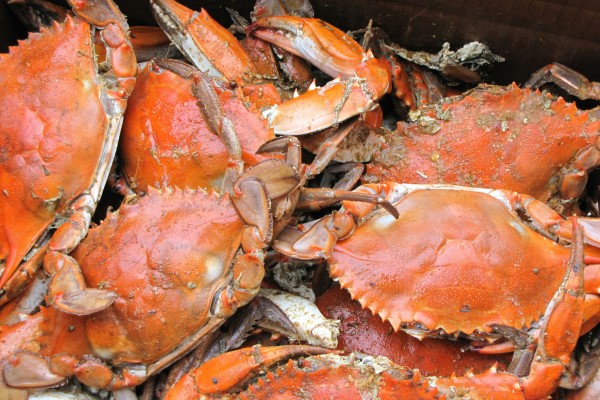The role of the Administrative Council for Economic Defense in combating cartels during the current context of the COVID-19 pandemic was the subject of a debate held on 8th o October. Discussions on the topic marked the fourth day of the National Week to Combat Cartels (NWCC), an event that has brought together authorities and experts in antitrust policy to address best practices against anti-competitive conduct.
The roundtable was attended by CADE's president,
Alexandre Barreto, and the general superintendent of the autarchy,
Alexandre Cordeiro, as well as the agency's Social Communication
Advisory, Juliana Cavalcante.
Aware of the health emergency being
continuously present since the beginning of the new coronavirus
pandemic, CADE was one of the first Public Administration bodies to
adopt measures related to the crisis, with the objective of protecting
the country's competitive and economic environment and guaranteeing the
well-being of society.
In this sense, the General Superintendence of the municipality opened an investigation, on March 18th, to investigate the occurrence of alleged anti-competitive practice in the market for medical-pharmaceutical products. The purpose of the process was to ascertain whether companies in the sector were increasing prices and profits in an arbitrary and abusive manner, given the high demand for these products.
"It is important to make it clear that the idea of opening this process at the time (...) was never to control prices," explained Cordeiro, stressing that CADE does not agree with actions aimed at this result. According to him, in the face of an unprecedented crisis, it was necessary to adopt initiatives that would allow the antitrust body to devote more attention to the affected markets to ensure its full functioning.
The health sector, according to the superintendent, has always been under the close monitor of CADE, especially concerning investigations of anti-competitive practices that harm various segments in this market - "With a health crisis that ends up reflecting on the economy, this concern increases. But I usually say that a crisis is also an opportunity. So, now is the opportunity to review the regulation of the sector (...), see the problems that are happening to adopt more energetic measures that protect Brazilian society, consumers and competition. "
Among other initiatives undertaken in the context of the COVID-19 pandemic, CADE also expressed concerns regarding some measures that were being proposed or adopted by government institutions at the beginning of the health crisis. One of them, for example, is the establishment of a maximum price for the resale of Liquefied Petroleum Gas (LPG), known as cooking gas. In April, the municipality's Economic Studies Department launched a technical note presenting assessments of the harmful effects that interventions of this type can have on the competitive environment and consumers.
In order to clarify CADE's positions, President Alexandre Barreto highlighted the three areas of action of the autarchy: preventive, repressive and educational. The combination of these functions, in its understanding, justifies the contributions offered by the body on matters that, in some way, involve competitive issues.
Regarding the educational or advocacy function, Barreto emphasized that CADE's role consists of "acting with other government agencies (...) in order to provide subsidies, make recommendations and collaborate with the discussion of the public agenda for allow the adoption of pro-competitive practices or prevent the creation of anti-competitive practices".
During his presentation, the president reiterated that
CADE is opposed to measures that lead to artificial price formation.
"Any form of government intervention in the formation of prices (...)
has the consequence of preventing the maintenance of a competitive
market", he pointed out.
In assessing CADE's performance in the
context of the pandemic, Barreto asserted that the municipality
demonstrated that it was prepared to develop its work in unstable
environments and did not "lose" its performance during these months,
either in the investigation of competitive illicit behaviour or in of
acts of economic concentration.
Regarding his expectations on the functioning of the markets in a post-pandemic scenario, Barreto was emphatic: "we cannot, under the guise of fighting an economic crisis in the pandemic, allow the concentration of markets that is harmful to consumers and society in general," he concluded.
In December 2019,
CADE published a Guide to Combating Cartels in Bidding won two
categories this month at the Antitrust Writing Awards, an award promoted
by the French magazine Concurrences, which specializes in antitrust
policy.
During the debate, General Superintendent Alexandre Cordeiro
celebrated the achievement and emphasized the importance of editing by
CADE to disseminate the culture of defence of competition.
"It is another international recognition that we received and, evidently, this is a reflection of the hard work that CADE's technical team has done over all these years", he celebrated.
At the beginning of the debate, the mediator Juliana Cavalcante recalled that on October 8th, the National Day for Combating Cartels, established in 2008 by means of an Official Decree, is celebrated. "This date was chosen because it was the day on which the first leniency agreement was signed in Brazil, in 2003".
"The idea of holding this series of events throughout the week is to mark the celebration of this date", pointed out Barreto. In addition to celebrating CADE's success in combating cartels in recent years, the president highlighted a feature of the work in the municipality that he considers important: its network performance.
According to him, CADE is a lean body, but extremely efficient, and accomplishes missions that would not be successfully achieved without the support and partnership of bodies such as the Federal Public Ministry, State Public Ministries, Civil and Federal police, courts of accounts, among others. "The policy to fight cartels is successful (...) thanks to the institutional support of such important partner bodies", he said.
The leniency agreement is an instrument used by competition authorities in several countries to unravel and punish cartels. The process in which the first formalization of this type of agreement took place in Brazil refers to the investigation of a cartel in a private surveillance service for tenders in the state of Rio Grande do Sul.
"It is an important tool that is always aimed at the public interest, especially the fight against cartels," said Cordeiro.
According to Cordeiro, CADE's leniency program is successful. However, there must be a balance between the use of the resource and the proactive action of the municipality in the identification of conducts that are harmful to competition, and this is the scenario experienced in the last decade - "The institution cannot be passively dependent on leniency agreements. There has to be a balance. We have to have instruments and tools that lead to a more robust investigation and increase enforcement to, consequently, have a deterrent effect", he evaluated.
CADE holds the National Cartel Combat Week from October 5th to 9th. The series of debates will count on the participation of national and international actors who will share experiences and best research techniques to allow the country to continue promoting the good functioning of the markets.




